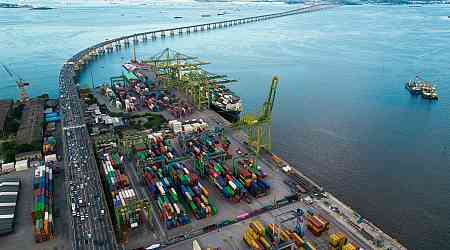 In a presentation that took place at Livraria Portuguesa (the Portuguese bookshop) on Saturday evening, historian Philip Stern covered his latest work, Empire, Incorporated: The Corporations That Built British Colonialism. His discussion touched on traditional views of British colonialism, emphasizing the crucial role corporations played in global expansion and governance.
In a presentation that took place at Livraria Portuguesa (the Portuguese bookshop) on Saturday evening, historian Philip Stern covered his latest work, Empire, Incorporated: The Corporations That Built British Colonialism. His discussion touched on traditional views of British colonialism, emphasizing the crucial role corporations played in global expansion and governance.
Stern argued that “corporations were fundamental to British colonial endeavors” from the 16th century onward. He asserts that these entities were not merely tools of the state; rather, they financed, promoted, and governed overseas ventures, intertwining public and private power in ways that resonate with contemporary concerns about corporate influence. Unlike traditional narratives that portray corporations as subordinate to sovereign states, Stern contends they were often the primary actors in colonial expansion.
The presentation traced the evolution of corporations from guilds to joint-stock companies, spotlighting early examples such as mining companies in England. By the late 15th century, merchants began funding exploratory missions led by figures like Venetian explorer John Cabot. These initial efforts set the stage for later colonial enterprises.
Despite numerous failures and significant debt, Stern noted that “failure did not deter future attempts.” Instead, it frequently inspired renewed efforts to rectify past mistakes. Investors defined profit in various ways—ranging from financial gain to religious conversion—creating a complex landscape of motivations behind these corporate endeavors.
A significant portion of Stern’s analysis focused on the East India Company (EIC), founded in 1600. While acknowledging its unique power among English colonial corporations, he placed it within a broader context of similar entities. Stern argued that while the EIC was exceptional in its territorial ambitions, it was part of a larger trend of corporate involvement in colonialism.
In the eighteenth century, Macau emerged as a crucial hub for the EIC as it sought to expand trade with China. The EIC’s initial voyages to Macau marked the beginning of a complex relationship between British traders and the Portuguese enclave, which had long served as the primary gateway for Western commerce into China. By the late 1690s, the EIC established a more permanent presence with the successful arrival of the vessel *Macclesfield*, signifying a turning point in English-Chinese trade relations.
This shift not only facilitated direct trading opportunities but also intensified competition with Portuguese interests eager to maintain their monopoly. As British influence grew, Macau became a vital communication and logistical center for EIC operations, ultimately reshaping trade dynamics in the region and laying groundwork for future colonial endeavors in Asia.
Stern also highlighted how corporations operated with substantial amounts of debt while minimizing individual risk for investors. This structure enabled them to undertake ambitious projects without facing immediate financial burdens. He likened corporations to “a river of tents,” constantly changing yet maintaining continuity over time.
In conclusion, Stern asserted that “the legacies of corporate colonialism persist today,” raising critical questions about corporate power and its relationship with state authority. He urged audiences to reconsider historical narratives that separate public and private spheres, suggesting that understanding this interplay is essential for comprehending contemporary global dynamics.
The presentation offered a compelling exploration of how corporations shaped not only British colonialism but also modern concepts of governance and power. As Stern’s work continues to gain attention, it invites readers to reflect on the enduring impact of corporate influence in today’s world. Nadia Shaw

































